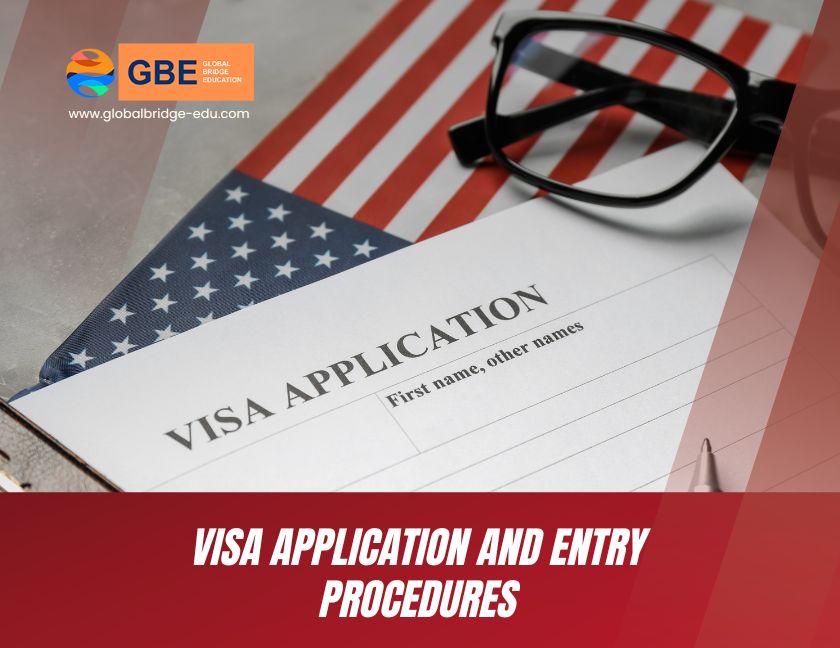Introduction
The landscape of U.S. immigration policy for international students is in constant flux, necessitating vigilant monitoring and proactive adaptation from both students and educational institutions. The period of 2024-2025 has witnessed several significant shifts, ranging from enhanced visa vetting procedures and changes in employment authorization rules to adjustments in filing fees and the introduction of new legislation with indirect impacts. This report aims to provide a comprehensive overview of these latest changes affecting F-1 and J-1 visa holders, offering critical perspectives to navigate the evolving regulatory environment effectively. Understanding these updates is paramount for maintaining legal status, ensuring compliance, and planning future academic and professional pathways in the United States.
Introduction
The landscape of U.S. immigration policy for international students is in constant flux, necessitating vigilant monitoring and proactive adaptation from both students and educational institutions. The period of 2024-2025 has witnessed several significant shifts, ranging from enhanced visa vetting procedures and changes in employment authorization rules to adjustments in filing fees and the introduction of new legislation with indirect impacts. This report aims to provide a comprehensive overview of these latest changes affecting F-1 and J-1 visa holders, offering critical perspectives to navigate the evolving regulatory environment effectively. Understanding these updates is paramount for maintaining legal status, ensuring compliance, and planning future academic and professional pathways in the United States.
Part I
I. Visa Application and Entry Procedures
This section details the latest modifications to how international students apply for and enter the United States, highlighting increased scrutiny and procedural adjustments.
A. Enhanced Screening and Vetting (Social Media Checks)
A significant procedural shift occurred on May 27, 2025, when the Department of State (DoS) announced a temporary pause in scheduling new international student visa interviews globally. This pause was explicitly implemented to allow the department to roll out new vetting processes, particularly concerning visa applicants’ social media activity. Following this, on June 18, 2025, the DoS formally announced the resumption of student and exchange visitor visa processing, coupled with expanded digital vetting procedures. A key directive issued to consular posts, titled “Action Request: Expanding Screening and Vetting for FMJ Applicants,” mandated a “comprehensive and thorough vetting” of all F, M, and J (FMJ) visa applicants. This scrutiny extends beyond traditional background checks to include an applicant’s “entire online presence,” not just social media activity, utilizing various search engines and online resources.
Applicants are now explicitly instructed to make their social media profiles public to facilitate this screening. Consular officers are advised to treat private or inaccessible accounts as a failure to provide required information, which could raise questions about the applicant’s credibility or suggest evasiveness. The stated objective of this enhanced vetting is to identify individuals who may harbor “hostile attitudes toward our citizens, culture, government, institutions, or founding principles,” or who “advocate for, aid, or support designated foreign terrorists and other threats to U.S. national security,” or who “perpetrate unlawful antisemitic harassment or violence”. This aligns with concerns raised by the FBI regarding foreign powers exploiting U.S. higher education institutions to steal technical information, exploit research, and spread disinformation. Consular officers have been instructed to prioritize expedited FMJ appointment requests for specific categories, such as J-1 physicians and F-1 students seeking to study at U.S. institutions where international students constitute 15 percent or less of the total student population. The implementation of these new procedures has been inconsistent across U.S. embassies and consulates as of early July 2025, leading to varied reopening of visa slots. Applicants are strongly advised to monitor their local U.S. embassy or consulate website for the most current guidance and appointment availability.
This explicit pause in visa interviews to implement new vetting processes concerning social media activity marks a profound change, indicating a fundamental shift towards proactive digital surveillance for national security. The subsequent mandate for a “comprehensive and thorough vetting” of an applicant’s “entire online presence”, coupled with instructions to view private accounts as a failure to provide information, moves beyond traditional background checks. This policy is driven by national security imperatives, as evidenced by the FBI’s warnings about foreign powers exploiting U.S. higher education for espionage or disinformation. This signifies that the U.S. government is now actively integrating digital scrutiny into the visa process as a permanent feature. Consequently, international students must meticulously manage their online presence, recognizing that their digital footprint is a direct factor in their visa eligibility. Educational institutions should consider incorporating “digital hygiene” best practices into their pre-arrival and orientation programs to prepare students for this new reality.
The instructions for consular officers to take the “time necessary” for vetting, without being bound by “quotas or processing targets”, combined with the broad and subjective criteria for identifying “hostile attitudes”, create an environment where adjudications may vary significantly. Public reports confirm that implementation has been inconsistent across embassies, and anecdotal reports of visa denials for students with past activism or minor police interactions have emerged. This variability introduces a substantial element of unpredictability for applicants. The shift from objective, clear-cut eligibility criteria to more discretionary assessments, potentially influenced by individual officer judgment or local consular priorities, makes it more challenging for advisors to provide definitive guidance. Students should be prepared for extensive questioning and potential delays, even if they believe they meet all stated requirements.
Despite the overall tightening of vetting procedures, consular posts have been directed to prioritize expedited visa appointments for certain categories, specifically J-1 physicians and F-1 students attending U.S. institutions where international students comprise 15% or less of the total student population.4 This targeted prioritization suggests a nuanced approach by the U.S. government. While enhancing security, it simultaneously seeks to facilitate the entry of individuals in high-demand fields, such as healthcare, or to support educational institutions that may be less popular among international students. This selective balancing act between national security concerns and economic/educational interests could influence where some prospective students choose to apply and where universities focus their international recruitment efforts.
B. Visa Interview Scheduling and Processing Updates
The temporary suspension of new F-1 visa interviews, which occurred between May 27 and June 18, 2025, was a direct consequence of the implementation of enhanced vetting measures. During this period, interviews that had already been scheduled were allowed to proceed as planned. The resumption of processing on June 18, 2025, was formally announced alongside the expanded digital vetting procedures.
The immediate impact of these procedural changes and increased scrutiny is evident in the data: F-1 student visa issuances to Indian students experienced a notable 27% drop between March and May 2025, when compared to the same period in 2024. This decline is attributed to a combination of administrative delays, heightened scrutiny of applicants, and the temporary pause in interview scheduling. To potentially expedite the screening process, the U.S. Embassy in New Delhi explicitly suggested that students make their social media profiles public.7 While consular posts were directed to implement the new vetting procedures within five business days of June 18, 2025, and resume scheduling, the actual implementation has been inconsistent across different U.S. embassies and consulates, with some locations not yet reopening visa slots. Applicants are now strongly urged to complete and submit their DS-160 nonimmigrant visa application form as soon as possible, even before attempting to schedule an interview, as this step has become increasingly crucial in the overall process. A revised visa interview waiver policy was also announced, although the provided information offers limited specific details on its direct impact on international students.
The significant 27% drop in F-1 visa issuances to Indian students, directly linked to administrative delays and temporary interview suspensions, indicates a fundamental shift towards the normalization of prolonged processing times and uncertainty. While the interview pause was temporary, the underlying “enhanced vetting measures” are permanent. Consular officers are now instructed to take the “time necessary” for adjudication, which implies a lack of pressure for rapid processing. This suggests that the recent delays are not an isolated incident but rather a symptom of a new, more thorough, and inherently slower visa adjudication process. The previous expectation of relatively quick F-1 visa processing is being replaced by a reality of extended wait times. Prospective international students must therefore apply significantly earlier than in previous years, factoring in potential delays of several months. This has direct consequences for academic planning, travel arrangements, and overall student readiness, potentially requiring universities to adjust admission and enrollment timelines.
The explicit advice for applicants to make their social media profiles public and to actively check local embassy websites for appointment availability due to inconsistent implementation places a greater onus on the individual. The emphasis on submitting the DS-160 application as “crucial” even before scheduling an interview further illustrates this shift. The government is effectively decentralizing information dissemination and placing the responsibility on individual applicants to stay informed and compliant with evolving, sometimes inconsistent, requirements. This adds a significant layer of complexity and stress to the application process. This development underscores the critical role of university international student offices and immigration attorneys in providing up-to-date, localized guidance. Students who fail to proactively manage these aspects risk substantial delays or even visa denials, highlighting the need for comprehensive preparation and vigilance.
C. Impact of Presidential Proclamations and Executive Orders on Entry
The period of 2024-2025 has been marked by a series of executive actions under the current administration, signaling a more restrictive stance on immigration. On June 4, 2025, a Presidential Proclamation titled “Restricting the Entry of Foreign Nationals to Protect the United States from Foreign Terrorists and Other National Security and Public Safety Threats” was signed, which established full or partial entry bans on nationals from 19 countries. Further, on January 20, 2025, President Trump issued several Executive Orders that could significantly impact international students: Executive Order 14159 introduced changes to U.S. immigration enforcement policies and clarified registration requirements and processes for non-immigrants, including those holding F or J status, with an effective date of April 11, 2025.8 Executive Order 14161, “Protecting The United States From Foreign Terrorists And Other National Security And Public Safety Threats,” directly mandates federal agencies to enhance immigration screening and vetting procedures. Its stated purpose is to ensure that foreign nationals admitted to the United States do not harbor “hostile attitudes” towards the U.S., thereby reinforcing the rationale behind the enhanced social media vetting discussed previously. Additionally, on January 20, 2025, the Department of Homeland Security (DHS) rescinded a 2021 guidance memorandum that had required headquarters approval before immigration enforcement actions could be taken in sensitive areas, such as schools and colleges. The removal of this protection potentially exposes educational institutions to more direct immigration enforcement activities.
The Laken Riley Act, signed into law on January 29, 2025 (Pub. L. 119–1), primarily targets undocumented immigrants but carries significant indirect implications for all non-citizens, including F-1 students. This Act expands the categories of aliens subject to mandatory detention under Section 236(c) of the Immigration and Nationality Act (INA). Under this expanded provision, a non-citizen, regardless of their immigration status (which includes F-1 visa holders), can be subjected to mandatory, no-bond detention if they are merely charged with, arrested for, or admit having committed certain crimes, such as burglary, theft, larceny, shoplifting, or assault of a law enforcement officer.10 Additionally, the Laken Riley Act purports to grant state attorneys general the authority to sue the federal government over immigration decisions they deem unfavorable. This provision could potentially lead to stricter visa issuance processes and increased scrutiny for international students, particularly in states that choose to exercise this new power.
The confluence of Executive Orders and Proclamations issued in early 2025 8, emphasizing “national security” and “securing borders,” indicates a clear policy direction towards a resurgence of a “hardline” immigration posture with reduced protections. The rescission of the “sensitive locations” memo is particularly telling, as it removes a previous administrative barrier that had largely shielded educational institutions from direct immigration enforcement. This, coupled with the broad language of Executive Order 14161, suggests a shift towards more aggressive and less constrained enforcement of immigration laws. This development signals a return to, or intensification of, policies prioritizing strict enforcement, where perceived threats are broadly defined. The traditional “safe haven” aspect often associated with educational institutions is consequently diminished. International students may experience heightened scrutiny at ports of entry, and universities could face more direct engagement from immigration enforcement agencies on campus, creating a less predictable and potentially more intimidating environment for foreign students.
The Laken Riley Act introduces a profound change in due process by expanding mandatory detention to non-citizens merely “charged with” or “arrested for” certain crimes, explicitly stating this applies “regardless of immigration status”.This means an F-1 student could face detention without bond and removal proceedings based solely on an accusation, even before a conviction. The provision allowing states to sue the federal government over immigration decisions further fragments federal immigration authority, potentially leading to inconsistent application of law and politically motivated enforcement at the state level. This legislative change effectively introduces a “guilty until proven innocent” dynamic in immigration detention for specified offenses. International students now face a significantly higher risk of detention and visa revocation for even minor infractions or false accusations. It is imperative for them to be exceptionally diligent in maintaining a clean legal record and to understand their rights, particularly the right to remain silent if questioned by law enforcement. Access to immediate legal counsel becomes critically important. Universities may need to enhance legal support services and “Know Your Rights” educational programs for their international student population to help them navigate this increased legal exposure.
This program requires valid language test results
Applicants interested in applying for direct admission, but are yet to complete an acceptable language test, can do so, but must provide valid results before receiving a final offer letter.
This program offers conditional admissions
For conditional admission, instead of submitting language proficiency test scores, applicants may complete English courses prior to the academic program. The length of the English course is determined based on the applicant‘s level of English proficiency.
The program requirements above should only be used as a guide and do not guarantee admission into the program.




